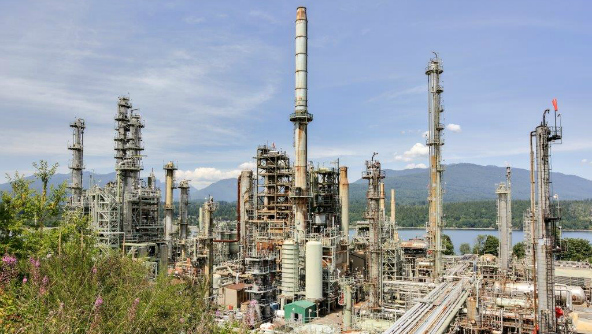The explosion that rocked the Torrance, CA ExxonMobil refinery in February injured four workers, sent ash and debris into the surrounding community, and may have contributed to a spike in local gas prices. It was powerful enough to register as a magnitude 1.7 earthquake for researchers at Caltech labs in Pasadena. However, now that the dust has literally and figuratively settled, it’s clear that the explosion may also pose serious financial difficulties for the city of Torrance.
The explosion and subsequent fire seriously damaged the plant’s electrostatic precipitator, part of the machine that allows the refinery to produce gasoline. (When operational, it produces nearly 2 billion gallons a year, or 20% of the gasoline used in Southern California.) With the plant temporarily idle, Torrance stands to lose an estimated $500,000 to $700,000 a month in utility-related tax revenue. The city could also lose millions more if refinery were to close and stop paying property taxes. However, all indications are that Exxon Mobil plans to repair it.
Many members of the local community are concerned about what belt-tightening resulting from this accident might mean. Politicians have held forums to address the public’s concerns. In March, California State Senate committees held a public safety hearing — “ExxonMobil Torrance Refinery Explosion: Community Impacts, Emergency Response, and Long-term Safety” — where representatives of Exxon Mobil testified about a number of community concerns, including those related to revenue. At least one local business owner used the hearing to complain that the blast had kept customers away from her store, further creating a negative financial impact.
U.S. Congress Members Ted Lieu (D-CA) and Maxine Waters (D-CA) sent a letter to the CSB formally requesting that the explosion be investigated.
The situation of close financial interdependence between a refinery and its local community is not unique to Torrance. According to a study by the Los Angeles County Economic Development Corporation, the oil and gas industry brings about $21.6 billion in tax revenues to state and local governments throughout California each year, and also pays about $18.8 billion in sales and excise taxes. Oil and gas workers contribute about $1 billion in the form of personal income taxes, and $3.8 billion in personal property taxes to local economies. The industry is responsible for 2.3% of total California employment.
In its recent report Adding Inequality to Injury: The Costs of Failing to Protect Workers on the Job, OSHA noted that industrial accidents can be “devastating to the injured workers, their families and communities.”
While the Torrance explosion luckily involve no loss of life and only minor injuries, the financial impact on the community where it is located may be great, and its full extent remains to be seen.







